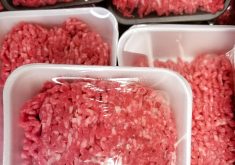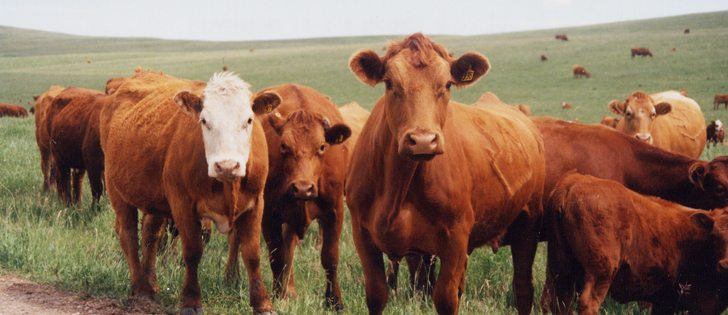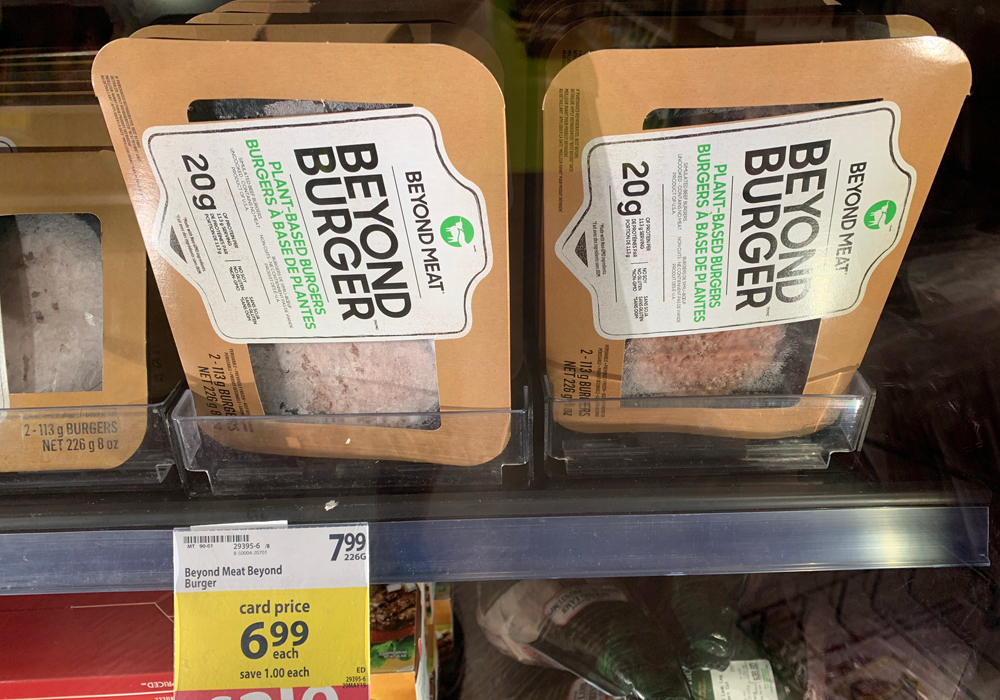Organization is pushing for mandatory GM labelling and hopes the rest of Canada will follow the leader
A Quebec group opposed to genetic modification wants the province to follow in the footsteps of its neighbour to the south.
Vigilance OGM has launched a campaign for a mandatory labellling law similar to the one that will go into effect in Vermont on July 1, 2016. Vermont is the first jurisdiction in North America to adopt such a law.
Thibault Rehn, co-ordinator of Vigilance OGM, a network of farmer, consumer and environmental organizations opposed to GM crops, said the time is right for mandatory labelling in Quebec.
Read Also

Trump’s tariffs take their toll on U.S. producers
U.S. farmers say Trump’s tariffs have been devastating for growers in that country.
“I think we’re kind of ready after 20 years,” he said.
“It’s essential that consumers here have the right to know what they’re buying and eating.”
The group is asking citizens to contact their deputies in addition to the ministers of agriculture, health and environment to push for mandatory labelling legislation.
The second step will be to launch a social media campaign followed by a series of community events.
Vigilance OGM is a member of the Canadian Biotechnology Action Network (CBAN). CBAN co-ordinator Lucy Sharratt said the tide is turning in the labelling debate.
“There is a renewed general interest in food and food production,” she said.
Consumers want to know how their food is produced. A recent Ipsos Reid poll shows 88 percent of Canadians are in favour of mandatory GM labelling.
“The food industry in North America is going to very soon reconcile itself with the reality of mandatory labelling,” said Sharratt.
Ian Affleck, CropLife Canada’s managing director of regulatory affairs for plant biotechnology, said labels exist to inform consumers about product safety and nutrition.
“This kind of labelling campaign doesn’t fit into either of those categories,” he said.
“It’s just providing information that isn’t necessary for the consumer. It doesn’t help inform their choice about what is safe and nutritious to provide to their families.”
U.S. farmers are extremely nervous about what impact the Vermont bill will have on their livelihoods.
The American Soybean Association (ASA) attempted to rally farmers at the Commodity Classic meeting in early March to contact their state senators to encourage them to vote in favour of a voluntary GM labelling bill in front of Congress.
“This is the tipping point for biotechnology in the agriculture sector,” said ASA chair Wade Cowan.
The Senate voted down the bill later that month. Shortly after the vote a number of major food manufacturers such as General Mills, Mars, Kellogg and ConAgra announced they would start labelling products containing GM ingredients.
U.S. Secretary of Agriculture Tom Vilsack, who used to be opposed to mandatory labelling, has recently come out in support of it, saying it is inevitable.
Affleck said the Quebec campaign is nothing but an attempt to demonize a technology that has greatly benefited farmers and has been deemed safe by Health Canada and the Canadian Food Inspection Agency.
“What we’d really hate to see happen is farmers lose choice in what tools they implement on their farm,” he said.
Vigilance OGM says GM crops have failed farmers.
“They are not earning more with GMO,” said Rehn.
The group wants farmers to grow more local, organic food.
It hopes Quebec’s politicians will be voting on a labelling bill before the end of 2016.
“If Quebec changed it could have a big influence on the rest of Canada,” said Rehn.
“You always need a leader and people follow the leader.”
Sharratt believes the odds are good that Quebec will become the first province in Canada to adopt mandatory labelling.
“If anywhere in Canada is going to begin really agitating most successfully for labelling it could be in Quebec,” she said.
















